Kick-off for the World Cup in cutting-edge research
“Horizon 2020” was launched on 14 January 2014. Switzerland is a full associate member. The EU has increased the budget for the programme by 30% and has promised to reduce the administrative hurdles.

The EU’s new Framework Programme for Research, “Horizon 2020”, kicked off at a national conference in Bern. Since 1 January 2014, researchers have been able to start submitting their project proposals. Switzerland is a full associate member of EU programmes.
“International cooperation on research and innovation is of immense importance for our country,” declared Federal Councillor Johann Schneider-Ammann. Research must not stop at national boundaries. “If we are to conquer global challenges, we have to seek out partnerships across borders,” said the Federal Councillor.
Horizon 2020 follows on from the 7th Framework Programme for Research and will run until the end of 2020. “Horizon 2020 is very important for Switzerland. Thanks to our involvement, researchers at ETH Zurich can take part in EU programmes on equal terms,” says ETH Zurich President Ralph Eichler, “enabling them to measure up to the very best in their field and share expertise with them.”
Switzerland’s participation is not yet quite signed and sealed, because the negotiations in Brussels are still ongoing, but the agreement should be signed in the course of 2014 and will be made retrospective to 1 January.
“It’s like qualifying for the World Cup”
Horizon 2020 will have a budget of nearly 80 billion euros for its seven-year term, of which Switzerland is contributing 4.4 billion francs. That means that the EU budget for research and innovation is 30% higher than under the previous programme.
The EU Commissioner for Research and Innovation Máire Geoghegan-Quinn confirmed: “Horizon 2020 is one of the world’s biggest ever research programmes. Being part of it is like qualifying for the football World Cup.”
Photo Gallery
-
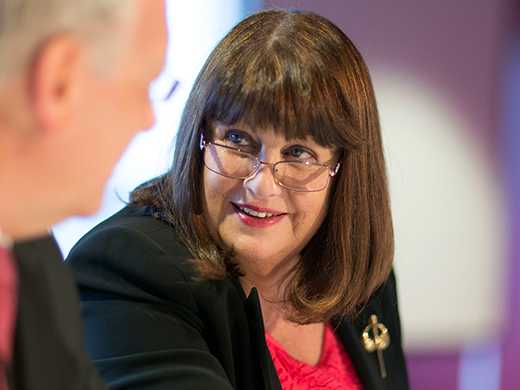
EU Commissioner Máire Geoghegan-Quinn has compared “Horizon 2020” to a football World Cup. (Photo: Gaetan Bally/SERI) -
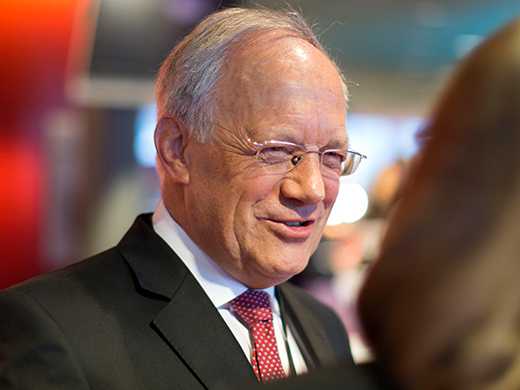
Federal Councillor Johann Schneider-Ammann highlights the importance of international research. (Photo: Gaetan Bally/SERI) -
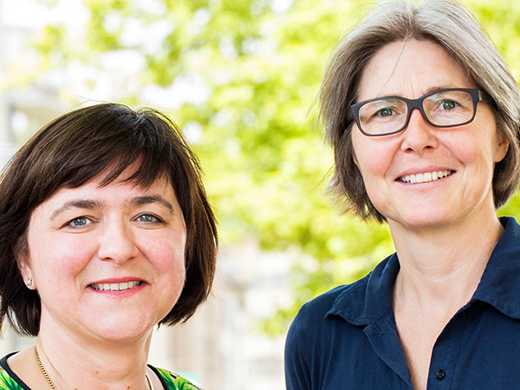
Sofia Karakostas and Agatha Keller from EU GrantsAccess support ETH Zurich’s researchers. (Photo: Stefan Kubli/EU GrantsAccess) -
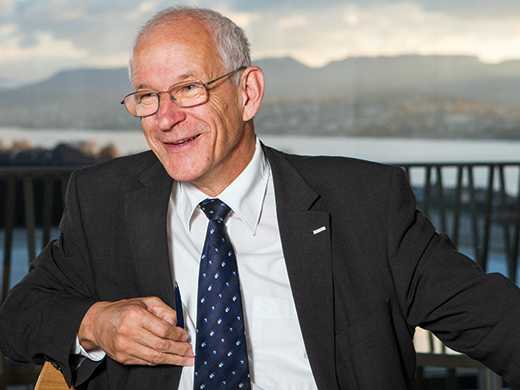
“Horizon 2020” will give ETH Zurich researchers access to EU programmes, says ETH Zurich President Ralph Eichler. (Photo: Tom Kawara/ETH Zurich) -
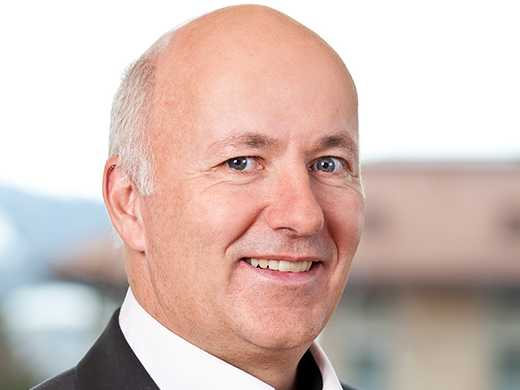
“Horizon 2020” will strengthen research and innovation, says ETH Zurich Vice President Roland Siegwart. (Photo: Giulia Marthaler/ETH Zurich)
For the first time, the Framework Programme brings together all the EU funding for research and innovation under one roof. In addition to fundamental research – which will continue to be supported by measures such as the prestigious ERC grants and Marie Skłodowska-Curie scholarships – Horizon 2020 also promotes the development of new technologies and research into social problems. Horizon 2020 also promises less red tape than the previous programme. According to EU Commissioner Máire Geoghegan-Quinn, submitting project proposals will be far easier and require less paperwork.
Opportunities for ETH Zurich
ETH Zurich aims to benefit from this simplification, too. “We hope that the workload will be less for both researchers and programme administrators,” says Roland Siegwart, ETH Zurich Vice President Research and Corporate Relations. “Horizon 2020 brings research and innovation closer together,” says Siegwart.
“That’s a wonderful opportunity for ETH Zurich, which has excellent links with industry and has already launched numerous spin-off companies over the years.” ETH Zurich has a great deal of expertise in just those areas where the EU wants to give more support to scientific solutions – for example, energy, mobility and food security.
However, sponsorship of fundamental research by the European Union will still continue to be of the utmost importance for ETH Zurich: “Our researchers have been particularly successful when it comes to the grants awarded by the European Research Council (external pageERCcall_made),” explains Vice President Siegwart. “We hope that this will remain the case in the future.”
“We’re always pleased to receive enquiries”
Researchers wishing to apply for EU sponsorship can obtain help from the information and advice centre, EU GrantsAccess. The centre is a regional office of the external pageEuresearchcall_made network run on behalf of the State Secretariat for Education, Research and Innovation (external pageSERIcall_made), and serves ETH Zurich and the University of Zurich. It provides information about current national and international research programmes and advice on individual project proposals.
The two co-managers of EU GrantsAccess are Sofia Karakostas and Agatha Keller. “We support researchers right through from when they submit their project until the reporting stage,” says Sofia Karakostas. All you need is a project idea and a few keywords to make it worth contacting the advice centre. “Then we can look together for suitable sponsorship schemes,” explains Agatha Keller.
In general, it is expected that, with Horizon 2020, there will be less administration involved in participating in EU programmes. “Fewer checks and balances and more trust, is the slogan,” believes Keller. However, some of the funding schemes connected with Horizon 2020 will require new research consortia to be established. “Here we can offer additional information and help with setting up a team,” says Karakostas. “We’re always pleased to receive enquiries.”
